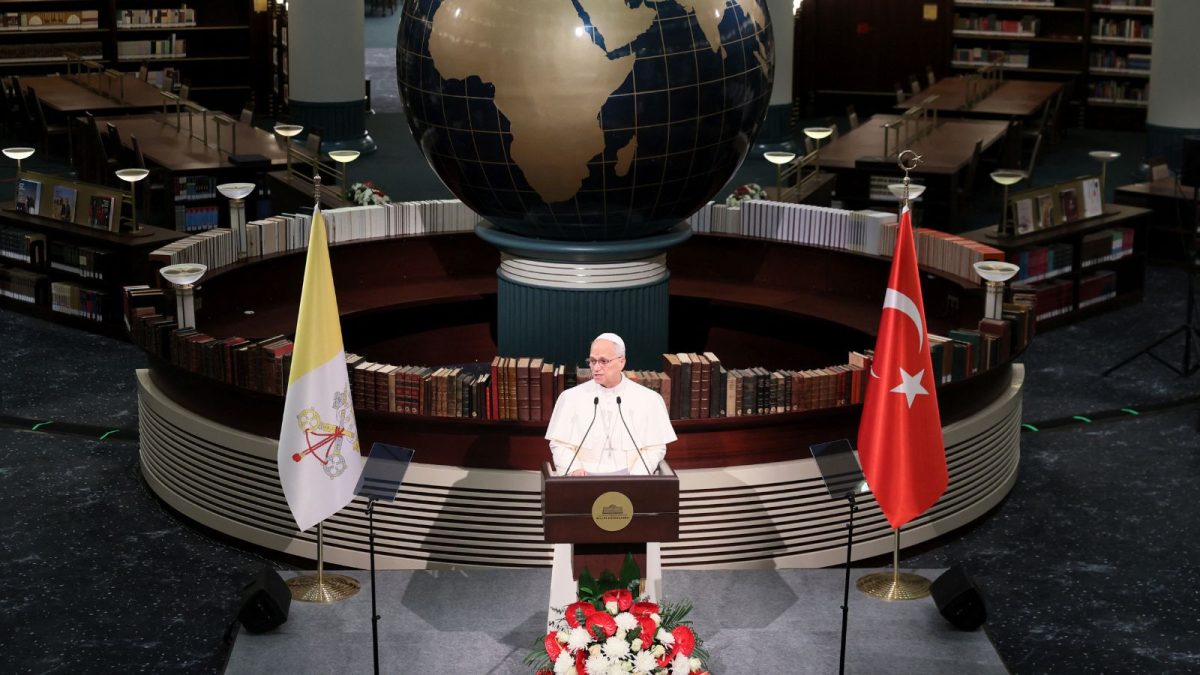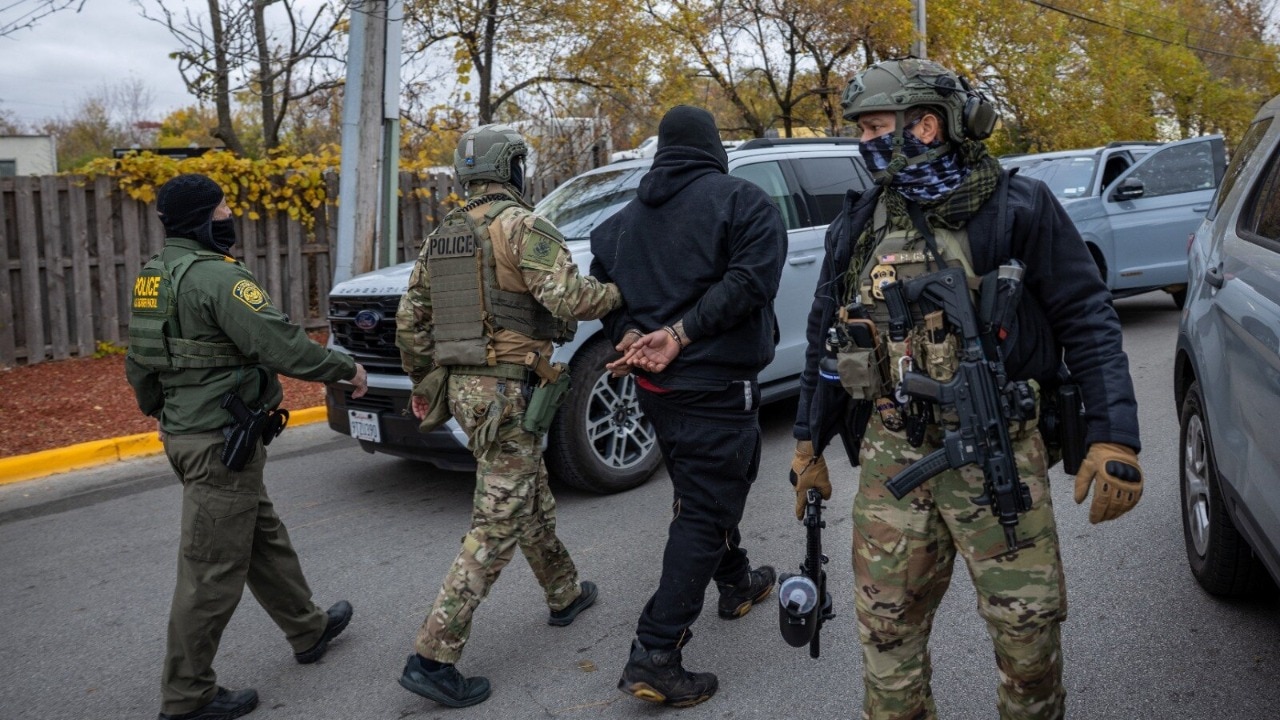Warehouse laborers from Asia say the world’s second largest employer, Amazon, has failed to live up to its promises to compensate them for financial abuses tied to their work for the online retailer in Saudi Arabia.
In 2023, Amazon promised to reimburse recruitment fees to its contract workers from Asia who had been forced to pay large sums to secure jobs at the company’s warehouses in Saudi Arabia. Since then, Amazon has paid more than $2.6m in compensation to roughly 950 workers from multiple countries.
But two years later, many migrants are still waiting for their recruiting fees to be repaid – and they are not sure if they will ever get financial redress. Thirty-six of the 67 workers interviewed by the Guardian for this story said they haven’t received payment from Amazon even though they paid stiff fees to get placed at jobs at the company’s Saudi operations.
“I want to tell Amazon: If you want to return money, give it to us quickly,” said Rameshwar Sharma, a worker from Nepal who said he has yet to receive compensation. “Don’t make fools of us. We’re not begging. We just want justice.”
In a statement, Amazon spokesperson Margaret Callahan said the company has “worked quickly and diligently to identify individuals who should be reimbursed for recruitment fees they paid to secure jobs with third-party vendors, in violation of our Supply Chain Standards”.
She added that “we know we aren’t yet done” and that the company “will continue to issue reimbursements as soon as possible”.
A labor rights expert at the human rights group Amnesty , which investigated Amazon’s labor practices in Saudi Arabia, said the logjam in getting payments to workers is unacceptable.
“Far too many are still waiting, and every delay prolongs their suffering,” Amnesty ’s Ella Knight said. “For one of the world’s richest companies, the sums involved are a drop in the ocean – yet for workers, timely justice could be life-changing.”
Amazon, she said, “should act swiftly to fully uphold its human rights responsibilities – providing meaningful redress to all affected migrant workers”.
Some workers interviewed for this story said the problem goes beyond a matter of delays. They say they have been flatly told they do not qualify for payments even though they shelled out high recruiting fees and worked at Amazon’s Saudi operations.
Several said they were told they had been denied payment because their time working at Amazon had ended before October 2023. A staffer at Impactt, a non-profit organization that is serving as a go-between for Amazon in the compensation process, left a phone message for one Nepali worker that the payments have been made only to those who had left work at Amazon in October 2023 or later.
“Why do dates matter to them?” another Nepali worker, Mitra Lal Sapkota, said. Impactt informed him, he said, that he wouldn’t get a refund of his recruiting fees because his work at Amazon in Saudi Arabia ended in 2022.
“What Amazon is doing feels like a pretense,” he said.
Amazon did not answer a question about whether October 2023 had served as a cutoff date for payment qualifications. It also did not answer a question about the criteria it is using to determine who gets paid and who doesn’t.
Questions about the treatment of workers who toiled at Amazon’s Saudi warehouses gained wide attention through an investigation published on 10 October 2023 by the Guardian, NBC News, the Consortium of Investigative Journalists and Arab Reporters for Investigative Journalism. The media partners revealed that labor firms had required workers seeking jobs at Amazon’s Saudi warehouses to pay between roughly $830 to $2,300 in recruiting fees – payments that violated United States and United Nations standards as well as Amazon’s own supply chain standards.
After being informed about the media outlets’ investigation and a separate investigation by Amnesty , Amazon promised to improve its labor practices and refund recruiting fees to laborers who worked at the company’s Saudi operations.
Amazon paid out roughly $1.9m to more than 700 workers by February 2024. But since then, the volume of payments has slowed and many workers have been voicing complaints about being left out. Thirty-three of the 44 current and former Amazon contract workers interviewed for a December 2024 Guardian story said they had not yet received reimbursement from the company. Amazon said at the time that “these are complex processes that take time, and we’re doing our best to expedite reimbursement.”
Since that follow-up story ran, Amazon has paid roughly 100 workers more than $330,000 in compensation.
Migrant laborers interviewed for this story are from Nepal, India, Bangladesh, Pakistan and Kenya.
MD Foisal Mia, a Bangladeshi laborer, said he paid more than $3,500 to a recruiting firm to get contract work at Amazon’s Saudi operations, taking out a loan to cover those costs. He said he has not heard from Amazon or Impactt about any compensation. He wants Amazon to know that a refund of his recruiting fees would make a big difference for him and his family.
“My family is poor. It’s difficult for us to run a household,” said Mia, who now works at a vegetable store in Kuwait. “Return my fees. This money is nothing for you, but it’s a life to me.”
Sonu Kumar Mandal, a Nepali laborer, went to work at an Amazon warehouse in 2021 in Riyadh, the Saudi capital, after he paid a recruiting firm $2,100 in fees and other costs – a huge sum for him and his family. To cover that cost, he said, he took out a loan from a village moneylender at a steep annual interest rate of 36%.
But he couldn’t pay off his loan as his income went towards supporting his financially struggling family.
“I have no money to pay the interest now. I don’t have a job,” he said. “If Amazon gives my money back, I would be able to clear my loan.”
Several workers who have not received compensation said Amazon could have informed them about the refund process if it genuinely wanted to compensate them.
“Amazon has my phone number, my email, my passport, everything,” said Kishor Kumar Chaudhary, another Nepali worker. “If they wanted to contact me, they could do it easily. But why didn’t they contact me?”
Pradip Kumar Mahato, another former Amazon worker from Nepal, filled out an online compensation form and sent voice messages to an Impactt staffer in July. In a voice message sent to Mahato, the staffer replied: “I’ll talk about you at a higher level. If any positive response comes, I’ll contact you … Your chance of getting [money] is very slim … We’re trying, but there is no guarantee.”
Callahan, the Amazon spokesperson, said the company has implemented robust grievance mechanisms for workers to report concerns. Amazon maintains a webpage where individuals, including former workers, can submit complaints in multiple languages regarding concerns about the company’s labor and environmental practices.

 1 month ago
1 month ago

















